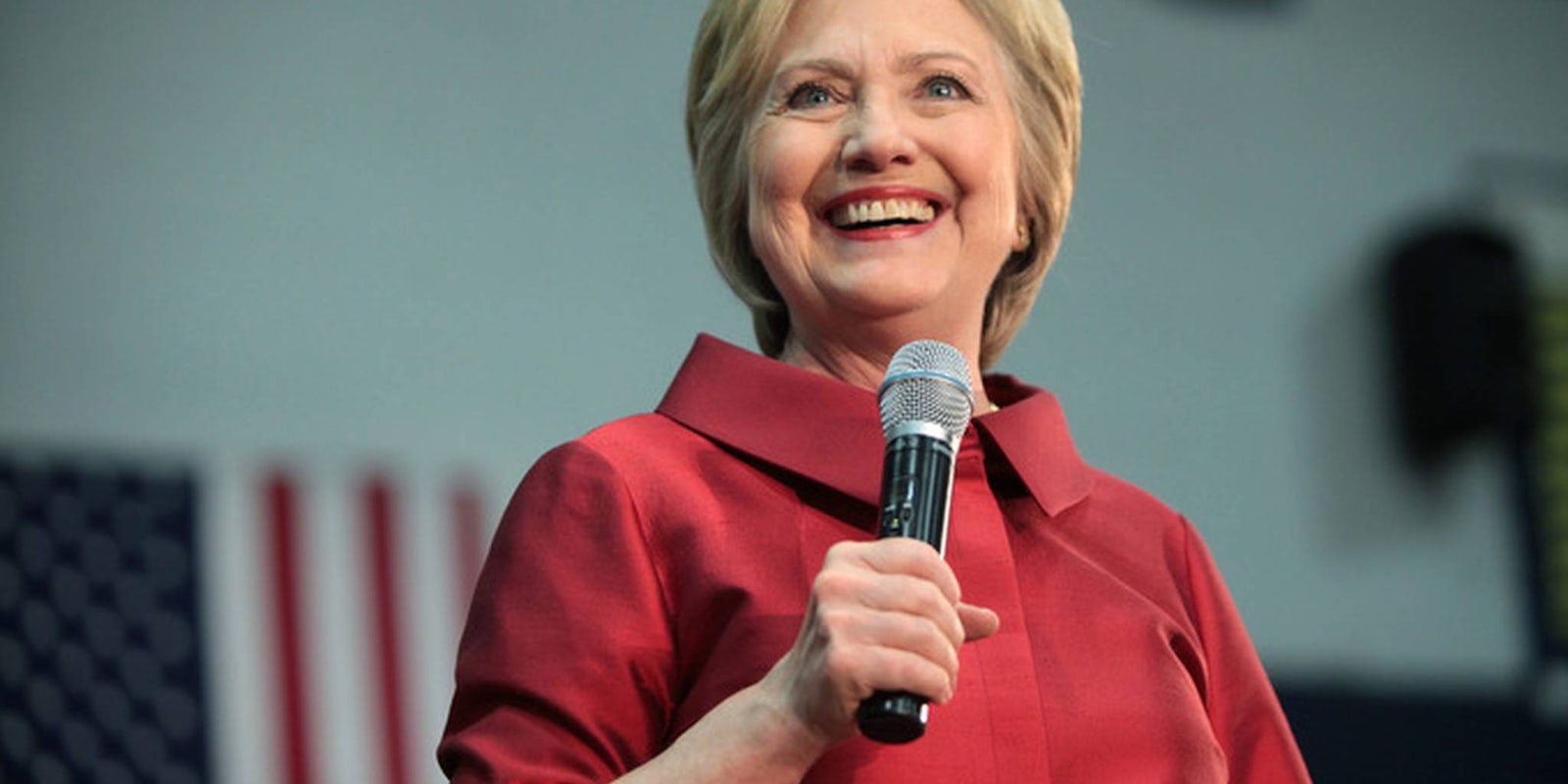Hillary Clinton won the New York Democratic presidential primary on Tuesday, decisively defeating rival Bernie Sanders despite whispers of a potential upset.
With 98 percent of district reporting, Clinton led Sanders 57.9 percent to 42.1 percent, extending her delegate lead over the Vermont senator.
The results follow two weeks of intense campaigning in the Empire State, where both candidates spent significant time in and around New York City and the surrounding areas as it became increasingly uncertain who would secure victory. Clinton’s victory also puts a wedge in Sanders’s winning streak, during which he’s won seven state contests since March 22.
This New York win will help Clinton solidify her place as the Democratic front-runner, quelling fears among her supporters that Sanders may have been able to clinch the nomination right before the party’s convention. Sanders, a Brooklyn native and independent senator of Vermont, considered New York a must-win state as the delegate math has increasingly favored Clinton.
Clinton, a former New York senator, led in polls ahead of Tuesday’s vote by an average of nearly 12 points. The former secretary of state will receive a majority of the 247 Democratic delegates up for grab in New York, which are distributed proportionally among the candidates.
Clinton leads the delegate race, having earned 1,428 pledged delegates and 502 superdelegates—party officials and other prominent Democrats who may switch their vote at any time ahead of the July convention. Sanders has 1,151 pledged delegates and 38 superdelegates.
A Democratic candidate must receive 2,383 total delegates (pledged delegates and superdelegates) to secure the party’s presidential nomination.
CNN exit polls show that Democratic voters are divided over the two candidates along demographic lines. Sanders, for example, received support from 54 percent of men and 43 percent of women, while Clinton’s support was nearly the mirror image (57 percent of women and 45 percent of men).
Sanders dominated in the under-45 demographic, earning support from 74 percent of voters ages 18 to 29 and 54 percent of voters 30 to 44, according to CNN exit polls. Clinton enjoyed similar support among older voters, with 57 percent support from the 45-64 group and 70 percent among voters 65 and older.
Sanders also earned the majority of support (54 percent) among white voters, exit polls found, while Clinton performed better among black voters (71 percent) and Latino voters (59 percent). And he outperformed Clinton with voters who identified as independent—though all primary voters in New York must declare a party to take part in the primary—with 78 percent of them supporting the Vermont senator.
Republican voters also cast ballots for the presidential nominees on Tuesday, with front-runner Donald Trump scoring a major victory over rivals Sen. Ted Cruz (R-Texas) and Ohio Gov. John Kasich.
The 2016 election continues next Tuesday, April 26, when candidates from both parties compete in the eastern states of Connecticut, Delaware, Maryland, Pennsylvania, and Rhode Island.
Update 8:37am CT, April 20: Added latest return counts and delegate gains.


